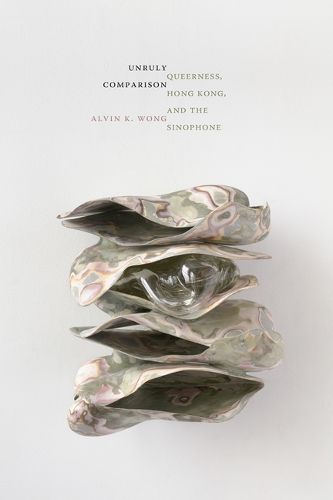Readings Newsletter
Become a Readings Member to make your shopping experience even easier.
Sign in or sign up for free!
You’re not far away from qualifying for FREE standard shipping within Australia
You’ve qualified for FREE standard shipping within Australia
The cart is loading…






In Unruly Comparison, Alvin K. Wong examines queerness in Hong Kong through a transdisciplinary analysis of Sinophone literature, cinema, visual culture, and civil society. Moving beyond Eurocentrism in queer theory and China-centrism in area studies, Wong frames Hong Kong as a model for global comparison by theorizing a method of unruly comparison--acknowledging the incommensurability of cultural texts and queer figures across different temporal and spatial locations. Here, unruly comparison positions Hong Kong as an undefinable time-space that troubles historicist, colonial, and China-centric renderings of the city as merely a site of British colonial legacy, Chinese rule, or global capital. Wong analyzes queer interracial desire in WWII; a cinema of gay male cosmopolitanism; queer intimacy among migrant workers; trans visuality and legality; cross-border sex work; and the queer diaspora of Hong Kong after the 2019 protest. Through Wong's readings, Hong Kong becomes a queer region of racial, gender, and sexual incommensurability. By foregrounding the friction, asymmetry, and perverse juxtapositions of unruly comparison of Hong Kong with the Sinophone world, Wong reframes key debates in queer theory and East Asian studies.
$9.00 standard shipping within Australia
FREE standard shipping within Australia for orders over $100.00
Express & International shipping calculated at checkout
In Unruly Comparison, Alvin K. Wong examines queerness in Hong Kong through a transdisciplinary analysis of Sinophone literature, cinema, visual culture, and civil society. Moving beyond Eurocentrism in queer theory and China-centrism in area studies, Wong frames Hong Kong as a model for global comparison by theorizing a method of unruly comparison--acknowledging the incommensurability of cultural texts and queer figures across different temporal and spatial locations. Here, unruly comparison positions Hong Kong as an undefinable time-space that troubles historicist, colonial, and China-centric renderings of the city as merely a site of British colonial legacy, Chinese rule, or global capital. Wong analyzes queer interracial desire in WWII; a cinema of gay male cosmopolitanism; queer intimacy among migrant workers; trans visuality and legality; cross-border sex work; and the queer diaspora of Hong Kong after the 2019 protest. Through Wong's readings, Hong Kong becomes a queer region of racial, gender, and sexual incommensurability. By foregrounding the friction, asymmetry, and perverse juxtapositions of unruly comparison of Hong Kong with the Sinophone world, Wong reframes key debates in queer theory and East Asian studies.